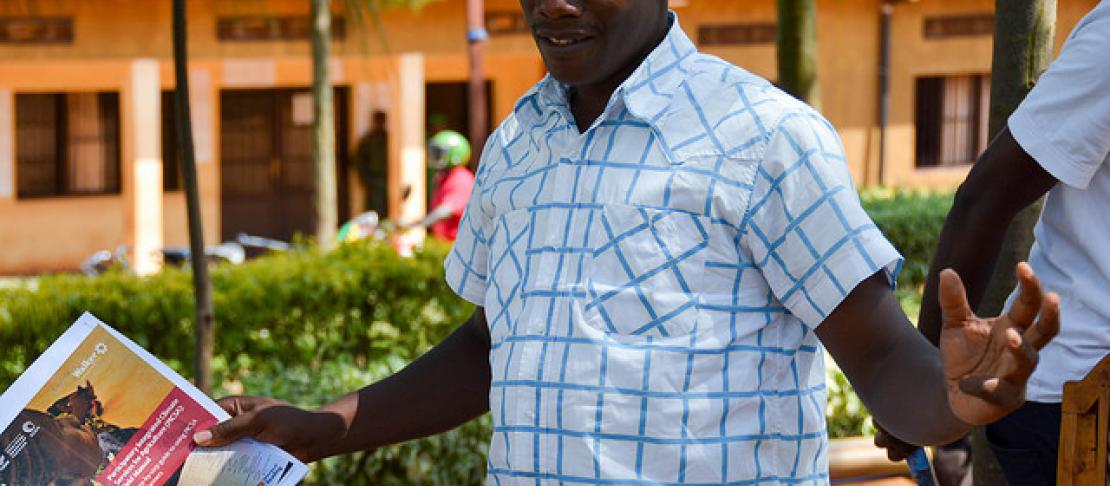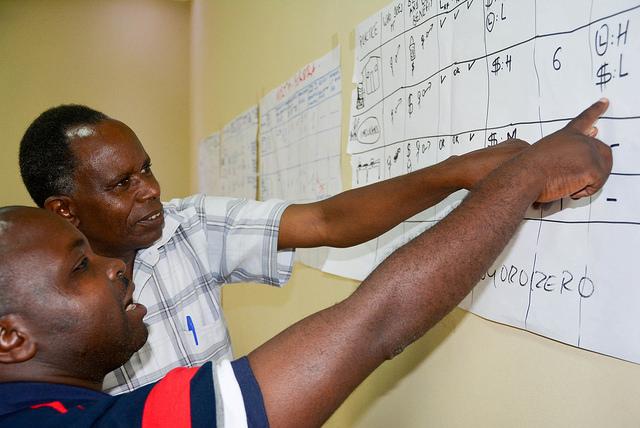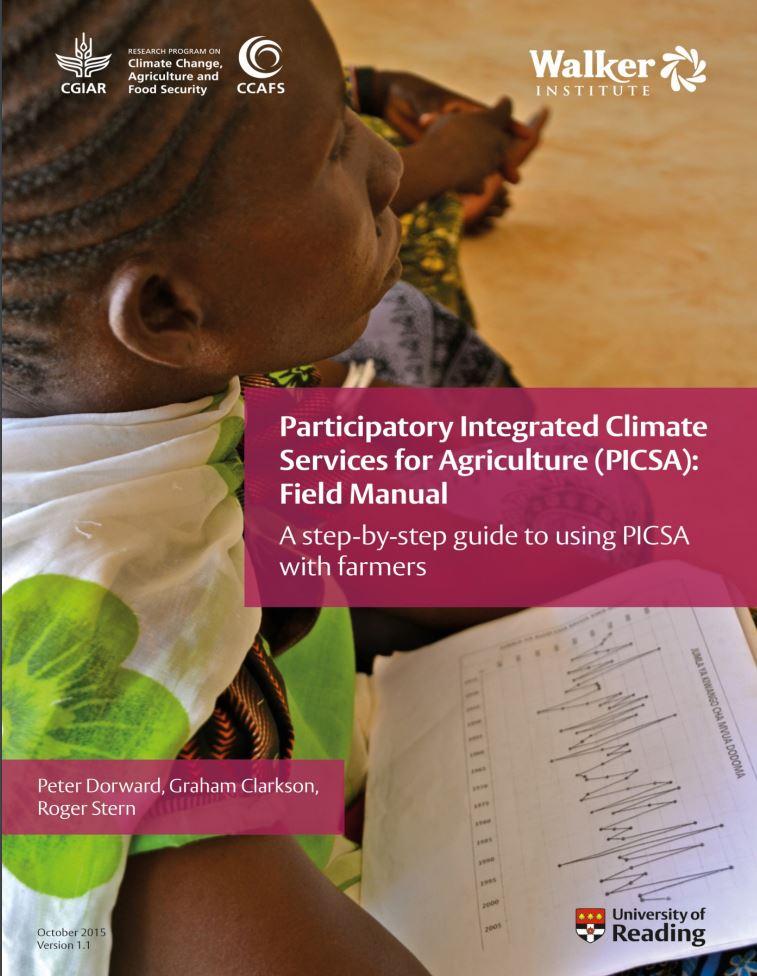Building capacity of intermediaries to avail climate services to farmers

A workshop session introduces participatory integrated climate services to agriculture extension workers in Rwanda.
From 6 to 10 June 2016, the CGIAR Research Program on Climate Change, Agriculture and Food Security (CCAFS) organized a training of trainers session on the Participatory Integrated Climate Services for Agriculture (PICSA) approach in Nyamata, in the outskirts of Kigali, Rwanda. The training session was part of key activities under the recently launched Rwanda Climate Services for Agriculture project, funded by the United States Agency for International Development (USAID Rwanda).
The training was conducted by staff from the University of Reading who have developed and implemented PICSA in several countries and staff from Rwanda Agriculture Board (RAB) who are running the Rwanda Climate Services for Agriculture project and collaborating with other key organizations including the Rwanda Meteorology Agency. A total of 30 intermediaries, representing agricultural extension staff, development non-governmental organisations and other intermediaries attended the five-day training discussing the twelve steps of the PICSA approach as documented in a manual published by University of Reading. On the fourth day, participants worked with groups of farmers in Muyumbu district to try out and gain experience in the use of the methods they had been trained on. On the final day they identified and developed plans for key follow up activities and to prepare for roll out.
The PISCA approach
The PICSA approach, which will be used in the project, involves agriculture extension staff working with groups of farmers ahead of the agricultural season to firstly analyse historical climate information and use participatory tools to develop and choose crop, livestock and livelihood options best suited to individual farmers’ circumstances. Then soon before and during the season, extension staff and farmers consider the practical implications of seasonal and short-term forecasts on the plans farmers have made.
PICSA will be crucial in ensuring over a million farmers across Rwanda’s 30 districts have decision-relevant, operational climate information and advisory services, and are better trained to manage risks. In the first year, four districts are targeted: Kayonza, Nyanza, Burera and Ngororero.

Participants read through diagrams they developed during the training on PICSA. Photo: V.Atakos (CCAFS)
Rwanda climate services for agriculture project
This project, launched on March 23 2016, seeks to transform Rwanda’s rural farming communities and national economy through improved climate risk management. The goal is to improve agricultural planning and food security management in the face of a variable and changing climate at both local and government levels. Key to this project is the wealth of applied research on climate services generated by CCAFS and its partners in Africa and beyond.
View more photos from the training:
Read more
- Launch Blog: Reaching a million farmers in Rwanda with useful climate services
- Project factsheet: Rwanda Climate Services for Agriculture
- NPR Blog: Turns out you do need a weatherman to know which way the wind blew
News update by Vivian Atakos, Communication Specialist, CCAFS East Africa.




